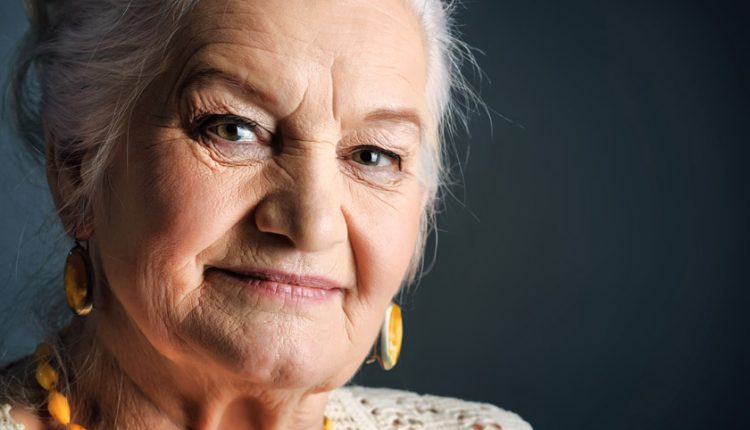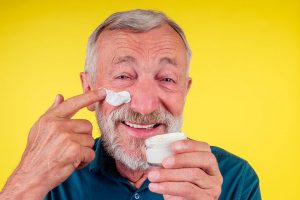
Thin Skin in Seniors and How to Deal with It
Most older adults frequently complain about thin skin. Thin skin tears or bruises easily, and it is a common problem in older adults. There are different reasons for thin skin, but aging, sun exposure, and genetics are the most common. Thin skin is more noticeable on the face. The skin consists of different layers; the middle layer (dermis) contributes to 90 percent of the skin’s thickness.
The dermis consists of collagen and elastin, and it provides strength, flexibility and elasticity to the skin. A thin dermis contributes to thin skin. As we age, our skin produces less collagen. It cannot repair itself because of a lack of collagen, resulting in thin skin. Some factors can help seniors deal with thin skin and avoid tears, bruises and skin breaks.
Use Sunscreen
If you have to stay for a long period under the sun, you are likely to see more dark spots, especially on your arms and legs, because your body is more exposed to the sun. Skin loses elasticity and looks weather-beaten, so use sunscreen and wear a hat whenever you go out or walk under the sun.
Contents
Quit Smoking
Smoking is notorious for its aging impact on the skin. It is a combination of thinning, drying, and wrinkling, so stop smoking if you want to have healthy skin. Believe it or not, skin is nothing but injurious to health, so quitting it is always the best decision.
Moisturize, Do Not Scratch
Xerosis, known as dry skin, is especially common with aging. It often shows up on the forearms and lower legs. Dry skin feels rough and looks flaky and dull. Because of the increase of dryness, fine cracks and fissures form in the skin. The skin starts itching with dry skin. As you itch your skin, you traumatize the skin. Moisturizing with lotion prevents dry skin. Because lotions contain alpha hydroxy acid, they may protect the skin. Use the best moisturizers for seniors to benefit from their anti-ageing effects.

Take It Easy on Your Skin
Take fewer baths and use lukewarm water rather than hot water. Instead of rubbing with a washcloth, be gentle and not use a harsh skin cleansing product. Choose the best soap for seniors if it’s your preferred cleanser. Keeping a humidifier at home is a good idea if you live in a dry environment.
Do the Following At-Home Treatments:
- Wear long sleeves shirts and long pants to protect thin skin from the sun.
- Wear double layers to protect the skin from tearing when working outside.
- Use rolled gauze bandages under clothing for very fragile skin to protect it from tearing.
Have a Healthy Diet
Nutrition impacts the process of aging of the skin and may help slow the process of thin skin due to aging. So follow suitable diets that keep the skin healthy. Foods that promote skin health are:
- Vegetables
- Olive oil
- Wild-caught, cold-water fish
- Legumes
- Fresh whole fruits
- Foods or supplements with vitamin A
- Fish oil supplement
Do Not Use Alcohol
Heavy drinking can increase the process of thinning skin. But if you enjoy drinking, consider reducing the volume and frequency of alcohol intake. If you increase the intake of alcohol, it will help you preserve your skin over time. It is better to use red wine in this circumstance because it does not have significant side effects.
Exercise
Exercise keeps the skin younger and reverses skin aging in people who start working out late in life. How exercise changes skin composition is not clear, but a study has shown that there has been a change in the levels of certain substances created by working muscles. Moderate exercise can improve circulation and boost the system, giving the skin a more youthful appearance.
Use Avocado Oil
Avocado oil is rich in omega-3, fatty acids and vitamins A, D, and E. Therefore, many makeup producers use avocado oil as the main ingredient in many types of cream. It is why avocado oil is very beneficial for the skin. It has eight benefits:
- Moisturizes and nourishes
- Relives the inflammation from psoriasis and eczema
- Prevents and treats acne
- Accelerates wound healing
- Treat sunburned skinning
- Reduces the signs of aging
- Improves nail health
- Improves scalp health
Increase Vitamin A Intake
Vitamin A is crucial for the growth of all bodily tissues, including skin and hair. It contributes to the production of sebum. Sebum is the oil that helps maintain moisture levels in the skin and hair. Good sources for vitamin A are cod olive oil, carrots, broccoli, sweet potatoes, kale, spinach, pumpkins, collard greens, eggs, apricots, cantaloupe melon, and milk.
Drink Water
If you drink enough water, it will help you keep your skin hydrated. Dehydration can cause the skin to appear flushed, dry, loose and lose elasticity. See a dermatologist; although the process of reversing changes is frustrating and expensive, several interventions can help your skin.
Consult Dermatologists
See your dermatologist for a consultation on areas you see thin skin. It would be best if you only treated the troubled spots. Creams can help these areas.
For the face, Retin-A reserves and prevents skin thinning and sun-related changes that come with age. Functional resurfacing lasers work to stimulate new dermal and collagen growth and improvement.
It would be best to have someone honest about what will work for thin skin. Many products claim to rejuvenate thin skin, but few over-the-counter products work for thin skin. So after knowing about your skin, your dermatologist can help find something truly beneficial.
Medications That Cause Thin Skin
Some people may experience thin skin due to the long term use of certain medications:
- Topical and oral corticosteroids
- Over-the-counter aspirin
- Prescription blood thinners
- Nonsteroidal anti-inflammatory drugs
- (NSAIDs) like ibuprofen (Advil) or naproxen (Aleve)
Final Words
In short, the fragile or thin skin condition tends to begin affecting people over the age of 60, and as they get older, it gets worse. Thin skin and resulting skin tears are a huge problem. The worst result of thin skin is the loss of confidence. Seniors become afraid of a repeat injury. Even moving around the house becomes a risky experience. Therefore, preventing skin tears is preferable to dealing with them after the events. Through the concept of dermatophytosis, skin fragility or thin skin of the elderly is a unique clinical syndrome, and more research and study is essential to know how to prevent it entirely.
Read more:

I have thin skin, and although I always try to keep it moisturized, it’s still so thin and dry. After reading this article, I know that avocado oil is beneficial for my skin. I’ve decided to buy one because, besides being helpful for thin skin, it also reduces the signs of aging.
I am 65 years old, and sometimes if I hit something, my skin tears open. Why is this happening, and what can I do to prevent it?
I haven’t heard of such a thing. But, based on my research, I recommend using normal saline or wound cleanser to clean the skin gently, then patting out the area or allowing it to air dry.
I am sixty-five years old, and my wife has taught me to prevent myself from doing harmful things that may cause premature skin aging five years ago. Since then, I stopped using processed foods and smoking too. I eat fresh fruits and vegetables every day. I removed refined carbohydrates from my diet. And also I exercise regularly with my children and my friends. So, if you want to have healthy skin, you need first to take care of yourself then be an active person.
I am seventy years old, and I am suffering from thin skin. My daughter told me yesterday to drink water to restore it to its previous condition. But honestly, I can’t get used to gulping more water down. So is there any way that I can try to help me drink enough water without pushing myself to do it? I even have fresh fruits and vegetables in my diet.
Hi everyone, I have a question. I have stopped smoking cigarettes; instead, I use e-cigarettes. Are they also harmful to the skin?
Hi, Anne. Unfortunately yes. Vaping liquids contain nicotine. This nicotine dehydrates the skin and decreases elasticity, leading to dry and saggy skin with premature wrinkles and fine lines. It also delays the healing speed of wounds. So, when you get a paper cut, it’ll stick with you for a while.
Another harmful effect of nicotine on the skin is that it triggers chronic skin conditions such as psoriasis and acne and various kinds of skin cancer like melanoma and squamous cell carcinoma. For the most part, vaping and smoking share the same side effects when it comes to the skin.
Genetics plays a significant role when it comes to thin skin. My mother, for instance, has sensitive, thin skin, which has always acted as a warning that I must pay attention to my skin and take care of it before anything gets too severe. For this reason, I never leave my house without wearing sunscreen, and I always make sure to drink enough water during the day.
Another thing that has helped me throughout the years is omega-3 pills. Omega-3, in general, is excellent for better skin elasticity, so I recommend taking them regularly to ensure healthy skin, even if your skin isn’t too thin.
I’m 67, and my biggest beauty challenge during the last decade was my skin and finding ways to make it more elastic and thick! Anyway, I think all of the tips and suggestions mentioned in this article are practical. Still, I think the secret is to keep your body hydrated. Do literally whatever that makes your body and skin cells hydrated, like drinking water, juices, and using hydrating skin products. It’s better to provide skin humidity directly by using deep hydrating skin products like serums, day and night creams, and even foundation. You can also consume hyaluronic acid tablets. You can quickly notice the improvement after a while.